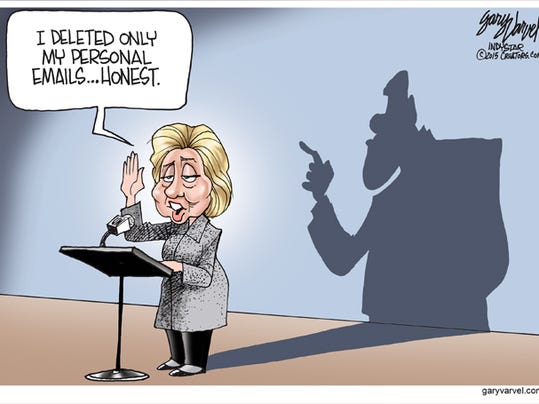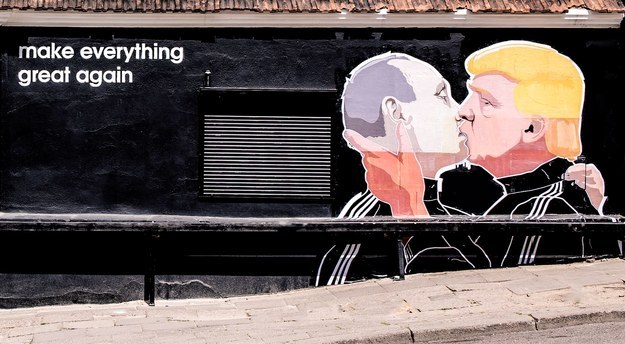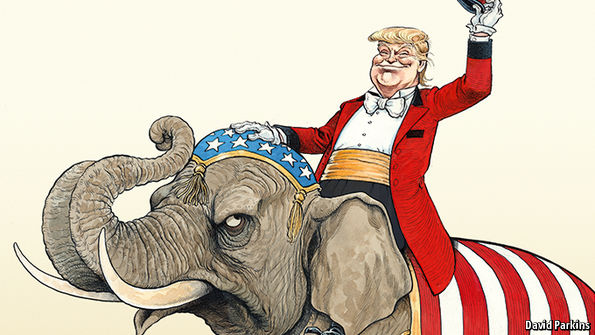DURING its 160-year history, the Republican Party has abolished slavery, provided the votes in Congress to pass the Civil Rights Act and helped bring the cold war to a close. The next six months will not be so glorious. After Indiana’s primary, it is now clear that Republicans will be led into the presidential election by a candidate who said he would kill the families of terrorists, has encouraged violence by his supporters, has a weakness for wild conspiracy theories and subscribes to a set of protectionist and economically illiterate policies that are by turns fantastical and self-harming.
The result could be disastrous for the Republican Party and, more important, for America. Even if this is as far as he goes, Mr Trump has already done real damage and will do more in the coming months. Worse, in a two-horse race his chances of winning the presidency are well above zero.
It is possible that, with the nomination secured, Mr Trump will now change his tone. The crassness of his insults may well be muted as he tries to win over at least some of the voters, particularly women, who now abhor him. His demeanour may become more presidential (though there was little sign of that in this week’s bizarre and baseless pronouncements that the father of Ted Cruz, his erstwhile rival, had been around Lee Harvey Oswald before he shot John F. Kennedy). What he will almost certainly not do is change political course. For it is increasingly clear that Mr Trump has elements of a world view from which he does not waver (see article). These beliefs lack coherence or much attachment to reality. They are woven together by a peculiarly 21st-century mastery of political communication, with a delight in conflict and disregard for facts, which his career in reality television has honed. But they are firm beliefs and long-held.
Beyond the braggadocio
That world view was born, in part, on his father’s construction sites in New York in the 1960s. Mr Trump likes to explain that he once spent his summers working in such places alongside carpenters, plumbers and men carrying heavy scaffolding poles. That experience, he claims, gave him an understanding of the concerns of the hard-working blue-collar men whom American politics has left behind. It explains his deep-rooted economic nationalism.
Mr Trump has railed against trade deals for decades. He was arguing against NAFTA in the early 1990s. He now calls it the worst trade deal in the history of the world. Similarly, he has always viewed America’s trade deficit as evidence of foul play or poor negotiating skills. For a man with such convictions, it is plain that more such trade deals would be a disaster and that American companies should move production back home or face tariffs. Mr Trump might be willing to bargain over the penalties they should pay, but the underlying instincts are deeply held. He is a conviction protectionist, not an opportunistic one. And, judging by the results of the Republican primaries, at least 10m voters agree with him.
On foreign policy Mr Trump mixes a frustration at the costs of America’s global role, something that has become common after the wars in Iraq and Afghanistan, with a desire to make the country feared and respected. Those outside America who dwell on his geographical and diplomatic ignorance (of which there is plenty) risk missing the simple principle that animates him. Mr Trump wants to make those outside America pay the full cost of the hegemonic protection it gives them. Allies should have to stump up more for American bases on their soil, and for the costs of equipping and paying the soldiers in them. It is not correct to call this isolationism, since Mr Trump has also proposed some foreign adventures, including the occupation of Iraq and seizure of its oilfields. Rather it is a Roman vision of foreign policy, in which the rest of the world’s role is to send tribute to the capital and be grateful for the garrisons.
Counting the damage
For those, such as this newspaper, who believe in the gains from globalisation and the American-led liberal order, this is a truly terrifying world-view. Fortunately, Mr Trump will probably lose the general election. A candidate whom two-thirds of Americans view unfavourably will find it hard to win 65m votes, which is about what the winning candidate will need. The share of women who disapprove of him is even higher.
But that should be scant comfort, for even without a victory in November Mr Trump’s coronation as candidate will cause damage. There may be violence at the Republican convention in Cleveland, where Trump supporters and protesters are likely to clash. Voters will spend the next six months hearing over and over again that Hillary Clinton, his Democratic opponent, is a crook and a liar. Much of that will stick even if she wins, leaving those who believe it enraged and Mrs Clinton weakened. America’s allies will watch the polls fearfully: whether at the UN Security Council or at bilateral talks in Beijing, Mr Trump’s spectre will loom over every meeting between America and a foreign power between now and November 8th.
The Republican Party, always fractious, may actually fracture. Even if he loses, Mr Trump will have shown that there is a path to the nomination that runs via nativism and economic populism. Mountaineers know that the surest route to the summit is the one that has worked before. Some Republicans will say that Mr Trump’s message, shorn of its roughest edges, could deliver victory next time. Others will argue that he lost because he was not a true conservative. Without agreement on what went wrong, it will be hard to forge something new.
And then, of course, there is the possibility that he might just win. Mrs Clinton is not loathed by as many Americans as Mr Trump is, but the share who view her unfavourably is far higher than is usual for presidential nominees. Just as the killings in Paris in December energised Mr Trump’s campaign, a terrorist attack or other event that terrified Americans could tip the vote his way. The balance of probability is against, but none of this is impossible. That is why Mr Trump’s triumph has the makings of a tragedy for Republicans, for America and for the rest of the world.











